US secretary of state Hillary Clinton said the second major element of US' strategy is a global effort to secure vulnerable nuclear material and enhance nuclear security.
With terror outfits like al-Qaeda aiming to grab nuclear weapons, the US has warned that the risk of an atomic attack has increased and sought efforts to lock down the world's vulnerable nuclear materials within four years and prevent them from falling into hands of terrorists.
"The nature of the threat has changed. We no longer live in constant fear of a global nuclear war where we're in a standoff against the Russians with all of our nuclear arsenal on the ready, on a hair-trigger alert," secretary of state Hillary Clinton said yesterday.
"But, as (the US) President (Barack) Obama has said, the risk of a nuclear attack has actually increased. And the potential consequences of mishandling this challenge are deadly," she said in her speech on nuclear non-proliferation at the University of Louisville, Kentucky.
Obama has convened a Nuclear Security Summit on April 12-13, which is being attended by leaders from more than 40 countries including prime minister Manmohan Singh, to discuss the crucial issue.
Observing that a nuclear attack anywhere could destroy the foundations of global order, Clinton said while the US and old Soviet Union are no longer locked in an atomic standoff, nuclear proliferation is a leading source of insecurity in the world today.
She claimed that nuclear proliferation by countries like North Korea and Iran endangers US forces, its allies and its broader global interests. "To the extent it pushes other countries to develop nuclear weapons in response, it can threaten the entire international order," Clinton said.
Nuclear terrorism, she said, presents a different challenge, but the consequences would still be devastating. A 10-kilotonne nuclear bomb detonated in Times Square in New York City could kill a million people.
Many more would suffer from the hemorrhaging and weakness that comes from radiation sickness. And beyond the human cost, a nuclear terrorist attack would also touch off a tsunami of social and economic consequences across the country, Clinton said.
She said there are three main elements of the US strategy to safeguard the country and allies against a nuclear attack.
"First, we begin with our support for the basic framework of the Nuclear Non-proliferation Treaty. The global nuclear non-proliferation regime is based on a three-sided bargain: countries without nuclear weapons agree not to acquire them; countries with nuclear weapons work toward disarmament; and every nation is afforded the right to access peaceful nuclear energy under appropriate safeguards," she said.
"Unfortunately, this bargain has been under assault. North Korea began developing nuclear weapons as an NPT party before announcing its withdrawal from the treaty. And Iran is flouting the rules, seeking to develop a nuclear weapons capability under the guise of a peaceful enrichment programme," Clinton said.
The US had "an urgent interest" in bolstering the world's nuclear non-proliferation framework and enforcement and verification mechanism. "And the new START treaty signed by president Obama and (Russian) President (Dmitry) Medvedev in
Prague helps us advance that goal," Clinton said.
"I'm not suggesting that a move by the United States and Russia to reduce our nuclear stockpiles will convince Iran or North Korea to change their behaviour. But ask yourselves, can our efforts help to bring not only the new START treaty into force, but by doing so help persuade other nations to support serious sanctions against Iran?" she said.
The Secretary of State said the second major element of US' strategy is a global effort to secure vulnerable nuclear material and enhance nuclear security.
"This, unfortunately, is not a theoretical issue. When the United States first started working to secure nuclear materials overseas - principally in the former Soviet Union - our teams of experts found highly radioactive materials stored in open fields without any security," she said.
"They discovered fissile materials - the ingredients for nuclear bombs-" warehoused in facilities without electricity, telephones, or armed guards. The International Atomic Energy Agency has released the details of 15 cases of smuggling involving weapons-grade nuclear materials since 1993.
"But we have no idea how many other smuggling operations have gone undetected. Nuclear terrorism has been called the world's most preventable catastrophe. But to prevent it, the world needs to act," Clinton argued.
Referring to next week's Nuclear Security Summit, she said it is the largest conference since the one that came together around the founding of the United Nations in 1945.
"Many of the countries who will be there have already taken concrete steps to strengthen nuclear security. And we expect announcements of further progress on this issue during our talks.
But we will also hear from other countries that are helping us keep a very close watch on anyone we think could be part of a network that could lead to the sale or transfer of nuclear material to al-Qaeda or other terrorist organisations," she said.
"We are trying to make this Summit the beginning of sustained international effort to lock down the world's vulnerable nuclear materials within four years and reduce the possibility that these materials will find their way into the hands of terrorists," Clinton said.
![submenu-img]() Viral video: Ghana man smashes world record by hugging over 1,100 trees in just one hour
Viral video: Ghana man smashes world record by hugging over 1,100 trees in just one hour![submenu-img]() This actress, who gave blockbusters, starved to look good, fainted at many events; later was found dead at...
This actress, who gave blockbusters, starved to look good, fainted at many events; later was found dead at...![submenu-img]() Taarak Mehta actor Gurucharan Singh operated more than 10 bank accounts: Report
Taarak Mehta actor Gurucharan Singh operated more than 10 bank accounts: Report![submenu-img]() Ambani, Adani, Tata will move to Dubai if…: Economist shares insights on inheritance tax
Ambani, Adani, Tata will move to Dubai if…: Economist shares insights on inheritance tax![submenu-img]() Cargo plane lands without front wheels in terrifying viral video, watch
Cargo plane lands without front wheels in terrifying viral video, watch![submenu-img]() DNA Verified: Is CAA an anti-Muslim law? Centre terms news report as 'misleading'
DNA Verified: Is CAA an anti-Muslim law? Centre terms news report as 'misleading'![submenu-img]() DNA Verified: Lok Sabha Elections 2024 to be held on April 19? Know truth behind viral message
DNA Verified: Lok Sabha Elections 2024 to be held on April 19? Know truth behind viral message![submenu-img]() DNA Verified: Modi govt giving students free laptops under 'One Student One Laptop' scheme? Know truth here
DNA Verified: Modi govt giving students free laptops under 'One Student One Laptop' scheme? Know truth here![submenu-img]() DNA Verified: Shah Rukh Khan denies reports of his role in release of India's naval officers from Qatar
DNA Verified: Shah Rukh Khan denies reports of his role in release of India's naval officers from Qatar![submenu-img]() DNA Verified: Is govt providing Rs 1.6 lakh benefit to girls under PM Ladli Laxmi Yojana? Know truth
DNA Verified: Is govt providing Rs 1.6 lakh benefit to girls under PM Ladli Laxmi Yojana? Know truth![submenu-img]() Alia Bhatt wears elegant saree made by 163 people over 1965 hours to Met Gala 2024, fans call her ‘princess Jasmine’
Alia Bhatt wears elegant saree made by 163 people over 1965 hours to Met Gala 2024, fans call her ‘princess Jasmine’![submenu-img]() Jr NTR-Lakshmi Pranathi's 13th wedding anniversary: Here's how strangers became soulmates
Jr NTR-Lakshmi Pranathi's 13th wedding anniversary: Here's how strangers became soulmates![submenu-img]() Streaming This Week: Heeramandi, Shaitaan, Manjummel Boys, latest OTT releases to binge-watch
Streaming This Week: Heeramandi, Shaitaan, Manjummel Boys, latest OTT releases to binge-watch![submenu-img]() Remember Ayesha Kapur? Michelle from Black, here's how actress, nutrition coach, entrepreneur looks after 19 years
Remember Ayesha Kapur? Michelle from Black, here's how actress, nutrition coach, entrepreneur looks after 19 years![submenu-img]() Remember Heyy Babyy's cute 'Angel' Juanna Sanghvi? 20 year-old looks unrecognisable now, fans say 'her comeback will...'
Remember Heyy Babyy's cute 'Angel' Juanna Sanghvi? 20 year-old looks unrecognisable now, fans say 'her comeback will...'![submenu-img]() Haryana Political Crisis: Will 3 independent MLAs support withdrawal impact the present Nayab Saini led-BJP government?
Haryana Political Crisis: Will 3 independent MLAs support withdrawal impact the present Nayab Saini led-BJP government?![submenu-img]() DNA Explainer: Why Harvey Weinstein's rape conviction was overturned, will beleaguered Hollywood mogul get out of jail?
DNA Explainer: Why Harvey Weinstein's rape conviction was overturned, will beleaguered Hollywood mogul get out of jail?![submenu-img]() What is inheritance tax?
What is inheritance tax?![submenu-img]() DNA Explainer: What is cloud seeding which is blamed for wreaking havoc in Dubai?
DNA Explainer: What is cloud seeding which is blamed for wreaking havoc in Dubai?![submenu-img]() DNA Explainer: What is Israel's Arrow-3 defence system used to intercept Iran's missile attack?
DNA Explainer: What is Israel's Arrow-3 defence system used to intercept Iran's missile attack?![submenu-img]() This actress, who gave blockbusters, starved to look good, fainted at many events; later was found dead at...
This actress, who gave blockbusters, starved to look good, fainted at many events; later was found dead at...![submenu-img]() Taarak Mehta actor Gurucharan Singh operated more than 10 bank accounts: Report
Taarak Mehta actor Gurucharan Singh operated more than 10 bank accounts: Report![submenu-img]() Aavesham OTT release: When, where to watch Fahadh Faasil's blockbuster action comedy
Aavesham OTT release: When, where to watch Fahadh Faasil's blockbuster action comedy![submenu-img]() Sonakshi Sinha slams trolls for crticising Heeramandi while praising Bridgerton: ‘Bhansali is selling you a…’
Sonakshi Sinha slams trolls for crticising Heeramandi while praising Bridgerton: ‘Bhansali is selling you a…’![submenu-img]() Sanjeev Jha reveals why he cast Chandan Roy in his upcoming film Tirichh: 'He is just like a rubber' | Exclusive
Sanjeev Jha reveals why he cast Chandan Roy in his upcoming film Tirichh: 'He is just like a rubber' | Exclusive![submenu-img]() IPL 2024: Mumbai Indians knocked out after Sunrisers Hyderabad beat Lucknow Super Giants by 10 wickets
IPL 2024: Mumbai Indians knocked out after Sunrisers Hyderabad beat Lucknow Super Giants by 10 wickets![submenu-img]() PBKS vs RCB IPL 2024: Predicted playing XI, live streaming details, weather and pitch report
PBKS vs RCB IPL 2024: Predicted playing XI, live streaming details, weather and pitch report![submenu-img]() PBKS vs RCB IPL 2024 Dream11 prediction: Fantasy cricket tips for Punjab Kings vs Royal Challengers Bengaluru
PBKS vs RCB IPL 2024 Dream11 prediction: Fantasy cricket tips for Punjab Kings vs Royal Challengers Bengaluru![submenu-img]() Watch: Bangladesh cricketer Shakib Al Hassan grabs fan requesting selfie by his neck, video goes viral
Watch: Bangladesh cricketer Shakib Al Hassan grabs fan requesting selfie by his neck, video goes viral![submenu-img]() IPL 2024 Points table, Orange and Purple Cap list after Delhi Capitals beat Rajasthan Royals by 20 runs
IPL 2024 Points table, Orange and Purple Cap list after Delhi Capitals beat Rajasthan Royals by 20 runs![submenu-img]() Viral video: Ghana man smashes world record by hugging over 1,100 trees in just one hour
Viral video: Ghana man smashes world record by hugging over 1,100 trees in just one hour![submenu-img]() Cargo plane lands without front wheels in terrifying viral video, watch
Cargo plane lands without front wheels in terrifying viral video, watch![submenu-img]() Tiger cub mimics its mother in viral video, internet can't help but go aww
Tiger cub mimics its mother in viral video, internet can't help but go aww![submenu-img]() Octopus crawls across dining table in viral video, internet is shocked
Octopus crawls across dining table in viral video, internet is shocked![submenu-img]() This Rs 917 crore high-speed rail bridge took 9 years to build, but it leads nowhere, know why
This Rs 917 crore high-speed rail bridge took 9 years to build, but it leads nowhere, know why 
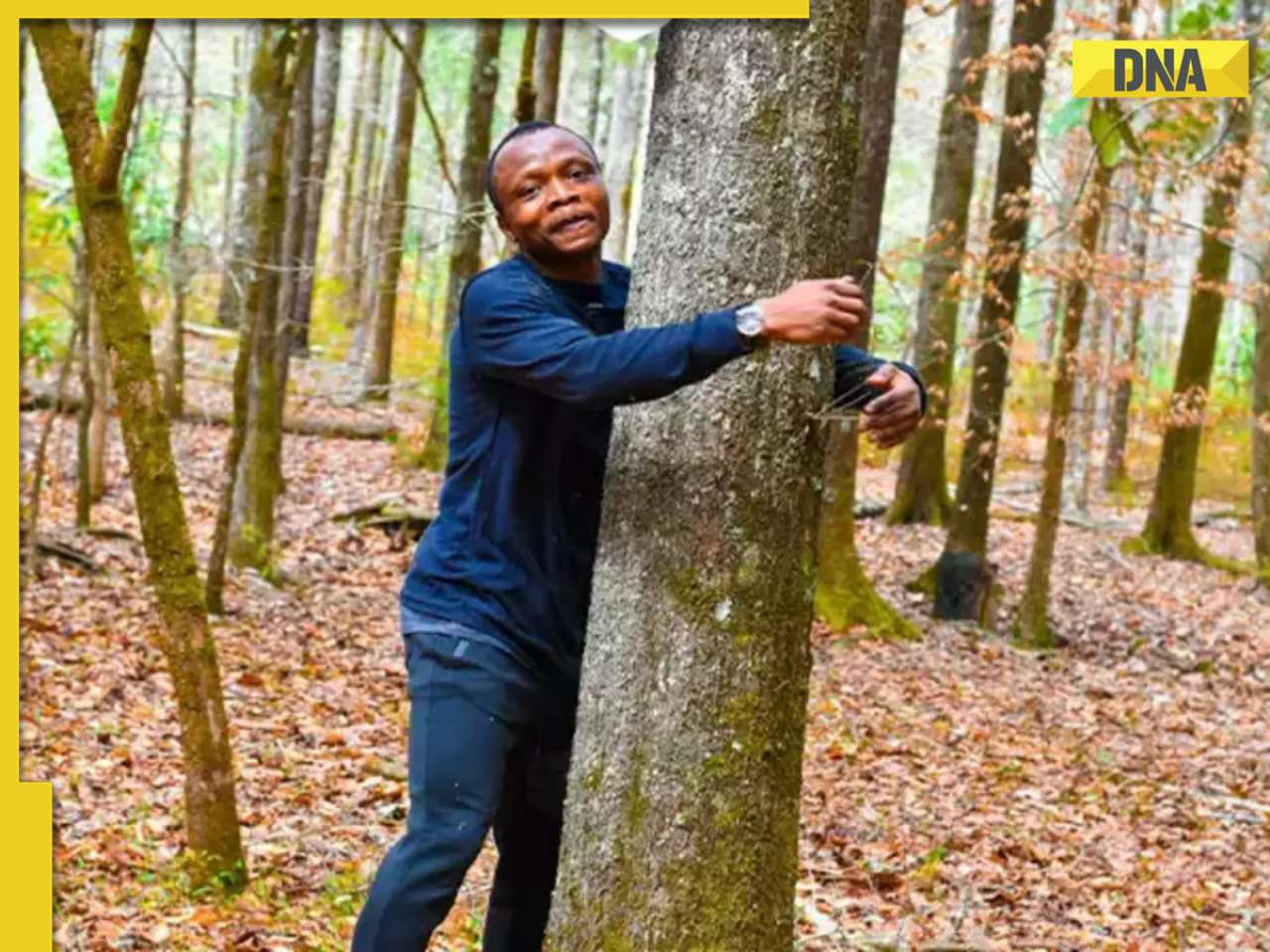


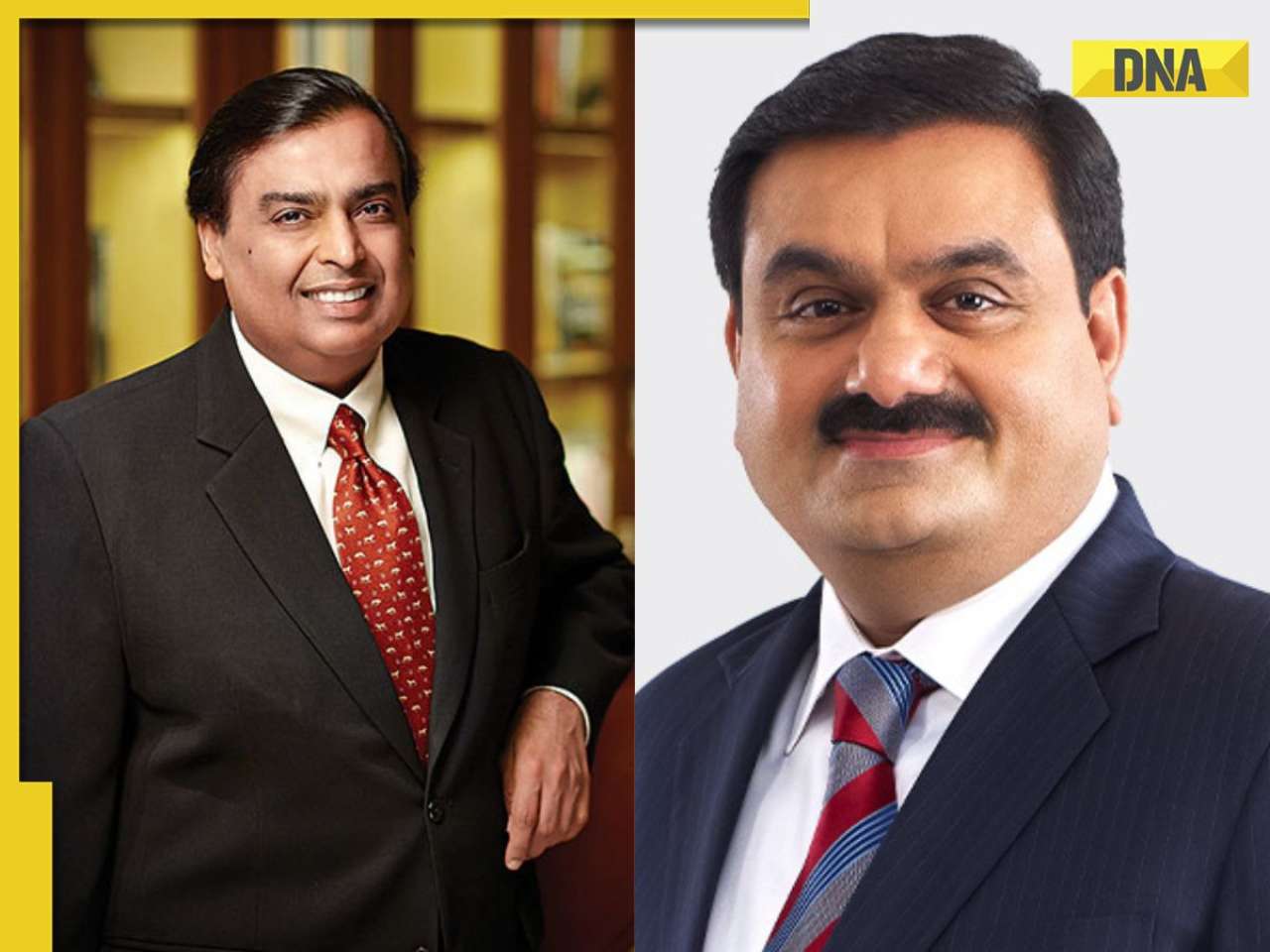
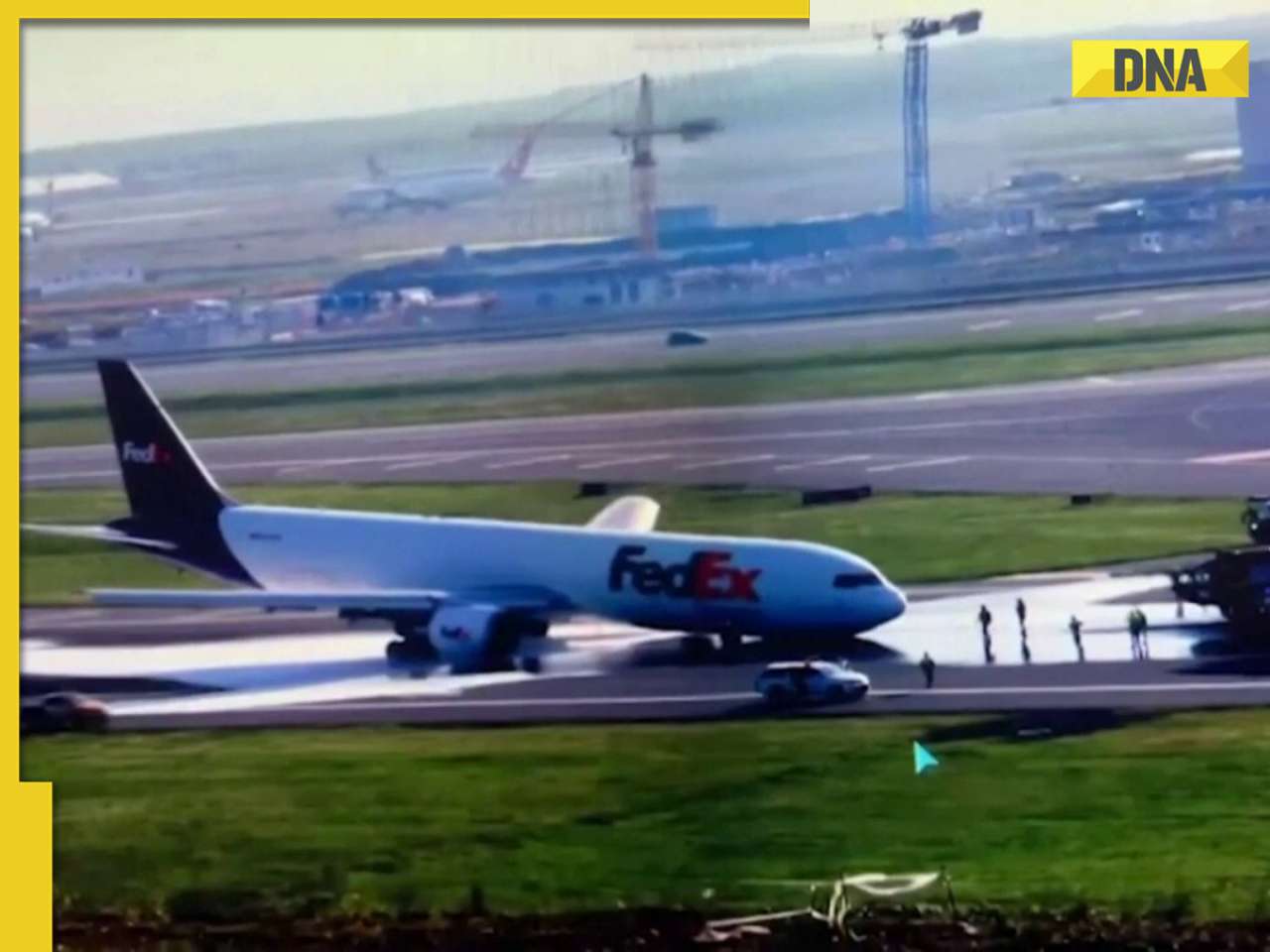




























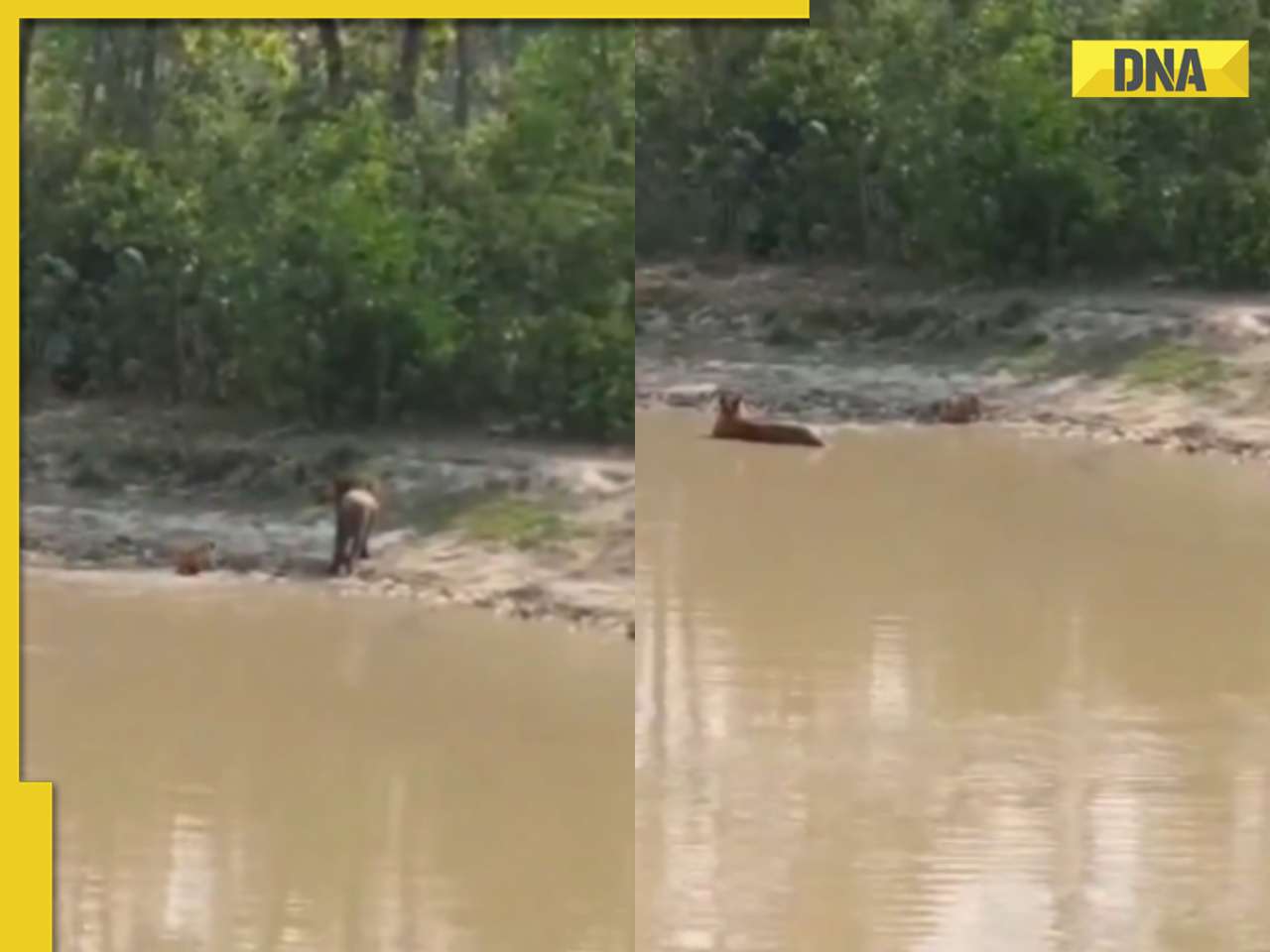

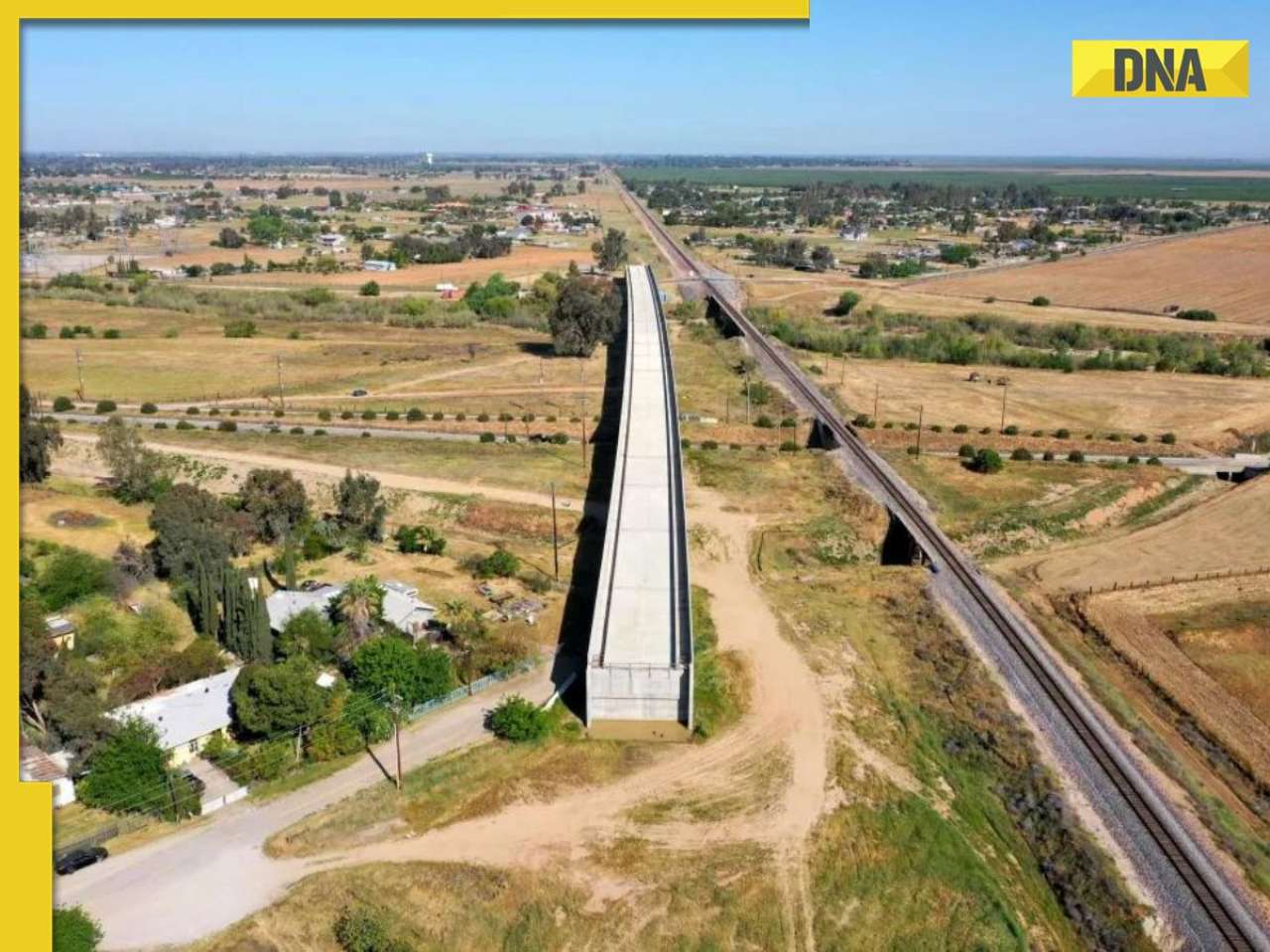












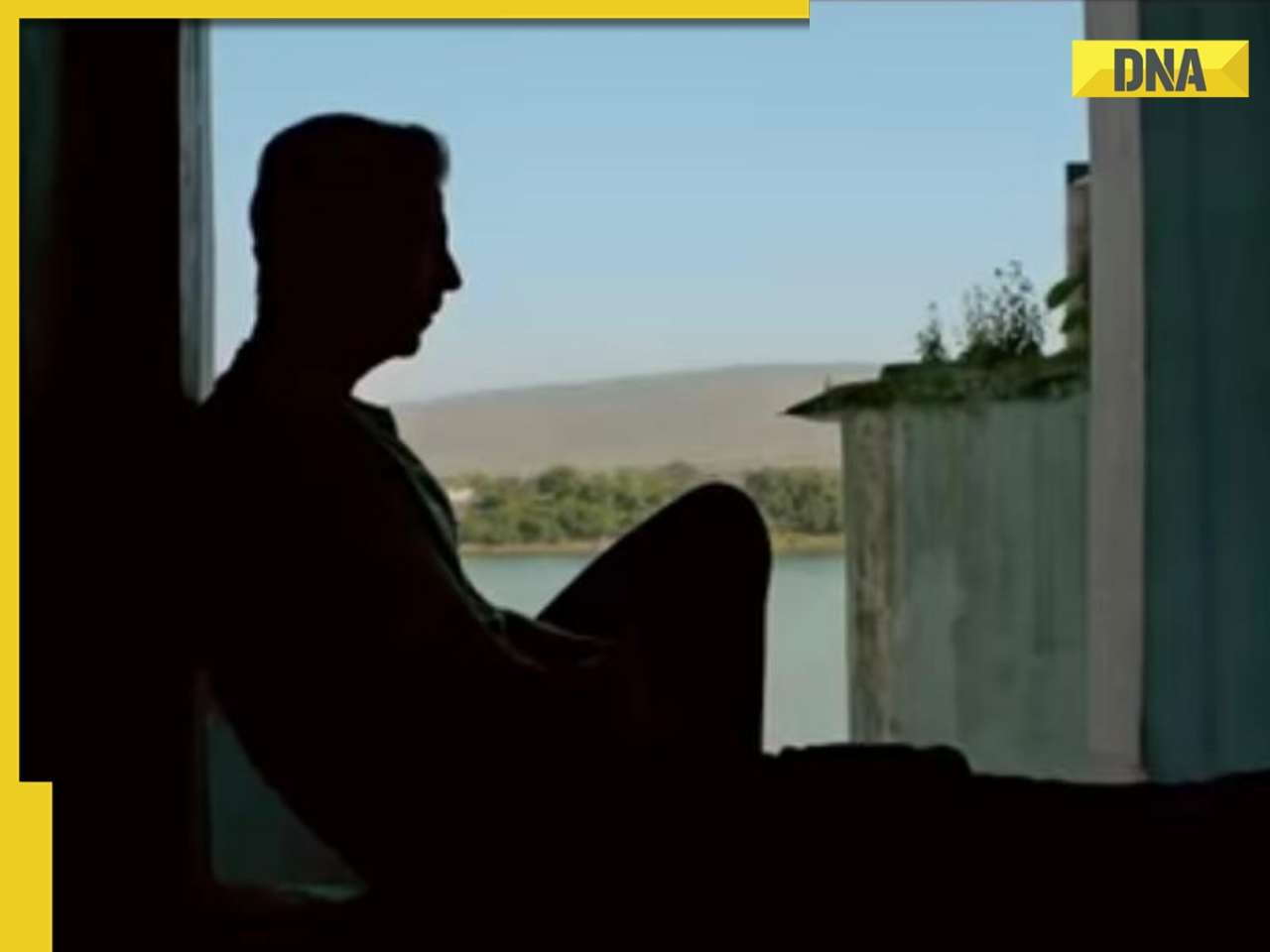




)
)
)
)
)
)